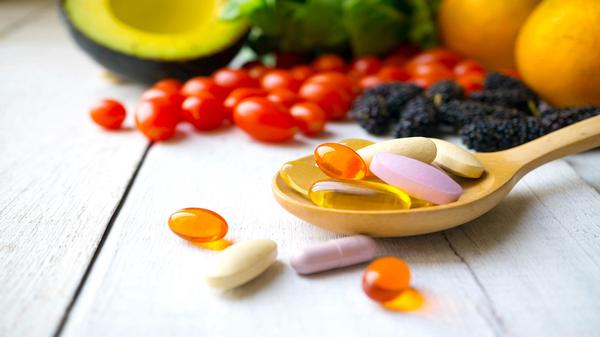How Vitamins And Minerals Can Improve Your Life
Carolina Cuartas
Vitamins and minerals are as essential for living as air and water. Not only do they keep your body healthy and functional, but they also protect you from a variety of diseases. Vitamins and minerals get thrown together, but they are quite different.
Vitamins are organic substances produced by plants or animals. These are essential for the body to grow and develop normally.
There are 13 vitamins your body needs:
Minerals - Minerals are inorganic elements that originate from rocks, soil, or water. They are essential for keeping your bones, muscles, heart, and brain working properly. Minerals are also important for making enzymes and hormones.
Minerals include:
The best way to get your vitamins and minerals is by incorporating them into your diet. This can come from fruits, vegetables, whole grains, beans, low-fat protein, and dairy products.
Here are some sources:
Vitamins
Minerals
Go Back Vitamins are organic substances produced by plants or animals. These are essential for the body to grow and develop normally.
There are 13 vitamins your body needs:
- Vitamin A
- Vitamin C
- Vitamin D
- Vitamin E
- Vitamin K
- B Vitamins (thiamine, riboflavin, niacin, pantothenic acid, biotin, vitamin B-6, vitamin B-12 and folate)
Minerals - Minerals are inorganic elements that originate from rocks, soil, or water. They are essential for keeping your bones, muscles, heart, and brain working properly. Minerals are also important for making enzymes and hormones.
Minerals include:
- Calcium
- Phosphorus
- Magnesium
- Sodium
- Potassium
- Chloride
- Sulfur
- Iron
- Zinc
The best way to get your vitamins and minerals is by incorporating them into your diet. This can come from fruits, vegetables, whole grains, beans, low-fat protein, and dairy products.
Here are some sources:
Vitamins
- B-1: ham, soymilk, watermelon, acorn squash
- B-2: milk, yogurt, cheese, whole and enriched grains and cereals.
- B-3: meat, poultry, fish, fortified and whole grains, mushrooms, potatoes
- B-5: chicken, whole grains, broccoli, avocados, mushrooms
- B-6: meat, fish, poultry, legumes, tofu and other soy products, bananas
- B-7: Whole grains, eggs, soybeans, fishB-9: Fortified grains and cereals, asparagus, spinach, broccoli, legumes (black-eyed peas and chickpeas), orange juice
- B-12: Meat, poultry, fish, milk, cheese, fortified soymilk and cereals
- Vitamin C: Citrus fruit, potatoes, broccoli, bell peppers, spinach, strawberries, tomatoes, Brussels sprouts
- Vitamin A: beef, liver, eggs, shrimp, fish, fortified milk, sweet potatoes, carrots, pumpkins, spinach, mangoes
- Vitamin D: Fortified milk and cereals, fatty fish
- Vitamin E: vegetables oils, leafy green vegetables, whole grains, nuts
- Vitamin K: Cabbage, eggs, milk, spinach, broccoli, kale
Minerals
- Calcium: yogurt, cheese, milk, salmon, leafy green vegetables
- Phosphorus: milk and milk products, proteins, whole grains, beans, lentils and nuts
- Chloride: salt
- Magnesium: Spinach, broccoli, legumes, seeds, whole-wheat bread
- Potassium: meat, milk, fruits, vegetables, grains, legumes
- Sodium: salt, soy sauce, vegetables
- Copper: shellfish, nuts, seeds, whole-grain products, beans, prunes
- Fluoride: fish, teasIron: red meat, poultry, eggs, fruits, green vegetables, fortified bread
- Manganese: nuts, legumes, whole grains, tea
- Zinc: meat, shellfish, legumes, whole grains

